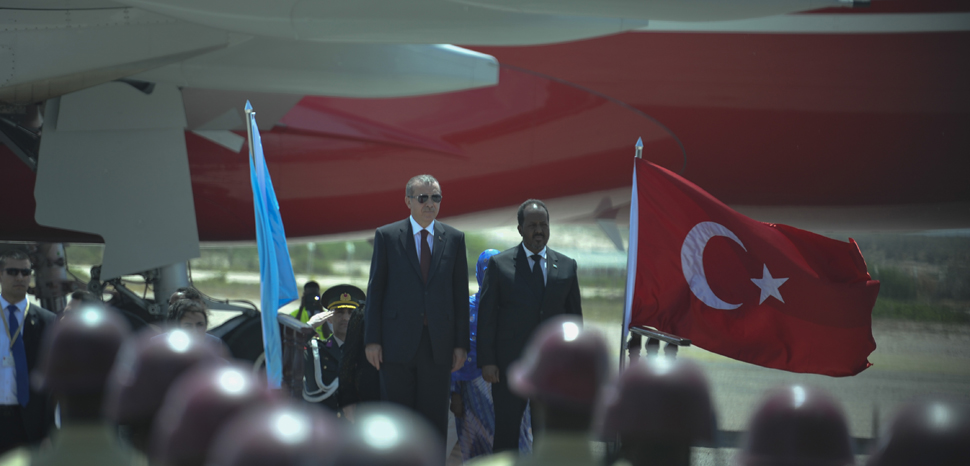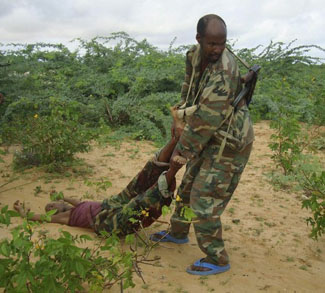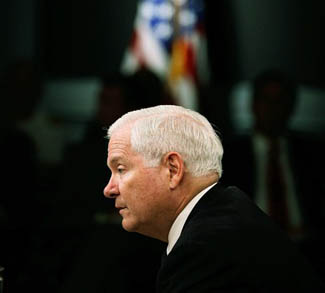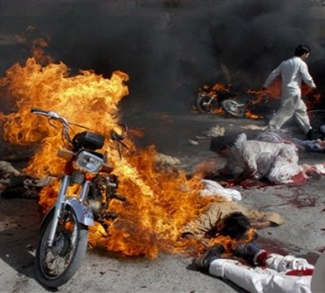Turkey’s President Recep Tayyip Erdoğan carried out a short African tour from 20-23 February. This visit, the second to the region in four months, took the Turkish leader to the Democratic Republic of the Congo (DRC) and Senegal. By now, President Erdogan has visited over 30 African states, not counting repeat visits.
The Recent Tour
Ankara has stepped up its initiatives regarding Africa in recent months. In October 2021, President Erdogan carried out a four-day tour to three African countries: Angola, Nigeria and Togo. Two months later, in December, Istanbul hosted the Third Turkey-Africa Partnership Summit, which was attended by 16 African heads of state. Now, the Turkish president has returned to Africa once again.
During the President’s visit to Kinshasa, capital of the Democratic Republic of Congo, Turkish and Congolese officials reportedly signed “a military framework agreement, a protocol on financial aid and a cooperation deal on the defence industry.” As for Senegal, this marks the fifth time the Turkish president has visited the country. During President Erdogan’s visit to Dakar, he attended the opening ceremony of the Dakar Olympic Stadium, which was built by a Turkish company, as well as the new Turkish embassy in Dakar. Bilateral trade between Turkey and Senegal reached $380 million in 2020. Erdogan was scheduled to visit Guinea Bissau, but the visit was postponed due to the war in Ukraine.
As of 2021, Turkey operates 43 embassies across Africa, compared to only 12 two decades ago, in 2002. Ankara plans to open new diplomatic facilities in Bissau, which will increase the number to 44.
No groundbreaking agreements were reportedly signed during the most recent tour, though President Erdogan tweeted that “ through our African partnership policy, we will continue to contribute sincerely to the peace and stability and economic and social development of the continent.” Overall, the visits to Kinshasa and Dakar demonstrate that Ankara continues to see the African continent as a place to expand its geopolitical presence, gain allies, and increase trade and investment.
Recent Developments
A recent analysis published by Al Jazeera summarizes Ankara’s African policy well: the Turkish government seeks “to increase its influence in the continent by using every channel of diplomacy, trade, investment, education, health, security and military cooperation along with soft power tools like culture and history.” The Turkish government reportedly aims to “nearly double its bilateral trade volume with Africa from last year’s $25.3 billion to $50 billion,” eventually reaching $75 billion.
Turkey has had success in selling defense equipment to Africa, with sales reportedly increasing from $41 million in 2020 to $328 million in 2021. The prospects are so optimistic that Turkey has set up 37 Military Offices throughout Africa.
One of the nations that has increased the purchase of Turkish equipment is Ethiopia; figures compiled during the first 11 months of 2021 show that the total amount of sales to Ethiopia rose from $235,000 in 2020 to $94.6 million in 2021. Some of the equipment that was provided to Ethiopia were Unmanned Aerial Vehicles (UAVs). It has been speculated that the Bayraktar TB2 medium-altitude long-endurance (MALE) UAVs, were critical in turning the tide in the ongoing conflict against the Tigray rebels. This has not gone unnoticed by other African countries that are also experiencing conflicts as Turkish defense technology could be a game changer.
In recent weeks reports have emerged that Nigeria is also interested in the Bayraktar TB2 systems. This should come to no surprise since Turkish President Recep Tayibb Erdogan visited the country in October 2021 and reportedly offered these platforms.
During the Third Turkey-Africa Partnership Summit, President Erdogan announced that his government will send 15 million doses of COVID-19 vaccine to Africa. The authors have been unable to confirm how many doses have already been transported, if any. Leaving that issue aside, the fact that Turkey is organizing these types of summits is noteworthy, as it demonstrates how Ankara is behaving like a regional power with global ambitions. After all, it is not easy to organize a summit between one nation and an entire continent. Global powers like China, Russia, the United States, and the European Union, have organized these type of summits, and Turkey is also a member of this elite club.
Geopolitics
There are some factors at work that are of benefit to Turkey. One of the largest ones is the departure of French troops from Mali with other European militaries following suit. Another factor is the apparent scaling down of military exercise Flintlock between the United States and partner African nations, as Washington focuses on other threats such as China and Russia.
As relations between some African nations with the United States, European states and even China sour, there is geopolitical space for new actors to befriend regional governments and grow their international pedigree. Of course, Turkish interests and activities in the African continent are not new, given the Ottoman empire’s presence there; and Ankara has certainly utilized these historical ties to support its current strategies.
The objective of this commentary is not to discuss whether Turkish foreign policy vis-a-vis Africa can, or should, be described as a neo-Ottoman foreign policy, as other analyses have done. To be fair, the Turkish media also highlight this link: a 1 January, 2022, article in the Turkish Daily Sabah, entitled “From Turkey to Africa: A way beyond imagination” describes how “Turkey’s recent rapprochement with African countries has been creating strong bonds between the country and the continent, perhaps the strongest since the demise of the Ottoman Empire.” The article goes on to argue how the African continent “serves only one purpose for imperialism and exploitation: the extraction of its immense natural resources,” by global powers, present and past, but the Turkish government is seeking a win-win relationship with African partners.
With that said, while Ankara is trying to showcase that it wants to be “everyone’s friend,” it is obvious that the Turkish government can and will take sides in order to protect national interests. Turkey’s role in the Libyan conflict is a good example.
Final Thoughts
While Turkey has interests in Ukraine and Syria, global hotspots, Ankara’s African strategy has not paused. The Turkish government has efficiently analyzed the situation across Africa and concluded that the rebalancing of interests by France and the United States in West Africa presents an opportunity for Turkey. As different African regions continue to be flashpoints or have evolving foreign policies, we can expect that for the foreseeable future Turkey will have an ample list of African partners that will desire Turkish defense technology, investment, educational aid and/or diplomatic support.
The views expressed in this article are those of the authors alone and do not necessarily reflect those of Geopoliticalmonitor.com




